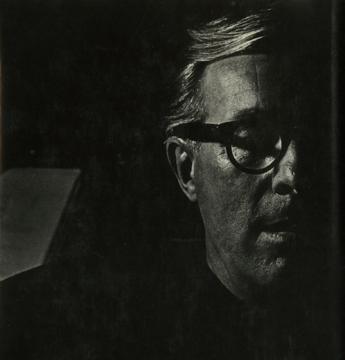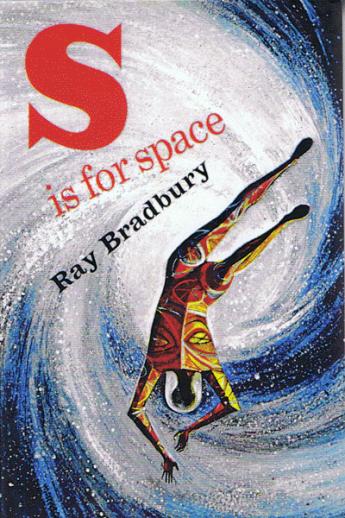Antiquarian Booksellers' Association of America Royal Books
Auto Shred: Ray Bradbury

By Kevin Johnson
When I was 8 years old, my mother took me to the public library in Van Buren, Arkansas to get me my first library card. I will never forget how the card had a little silver plate embedded in the paper. It was probably the first thing I had ever been given, other than birthday cakes, that had my name printed on it.
Mom had checked books out for me in the past, but this time I got to pick out my own. She instructed me on the basics: pick out just one I really thought I would like, then I could read it, return it, and get another one. I had read some juvenile science fiction, but felt I was now ready for some grown-up stuff. The book I checked out was Ray Bradbury’s S is for Space. Definitely my first memory of a dust jacket that utterly reeled me in, and what an author photo! He looked every bit as eerie and unfathomable as the stuff of his stories. (I searched Google in vain all morning for this amazing image, and finally scanned it from the rear panel of a first edition.)
Bradbury’s stories and novels changed my life. Changed the way I considered things, broke through the boundaries of what I understood to be real, and set the bar in terms of narrative. He was utterly unconcerned with usual hard science fiction tech speak and gadgetry. For him, rockets, alien races, and other planets were a template that gained him access to ideas that were big, scary, wondrous, interestingly detailed, and conceptually huge. His stories were often not set in the future at all, not even science fiction in the traditional sense. More like concept fiction. He loved genre, and mixed it freely–but always purposefully–with his own game.
I began plowing through all his novels and story collections. The Martian Chronicles was probably the first book I ever read twice in the same year. I ultimately ran up against a few I wasn’t quite ready for–Dandelion Wine, A Medicine for Melancholy, The October Country, I Sing the Body Electric!–but they greatly challenged me, and a few years later I returned to them for another try.
Bradbury wrote with great economy, a writer’s writer. He gave me a great love for other authors I would go on to discover that could do the same, like Charles Willeford, Charles Portis, and Paul Auster.
The moment you hear someone has died, you know immediately how you felt about them. When I got the news this morning in June 2012, all I could think about was how Ray Bradbury made me love books, and how his stories taught me to dream. How huge is that?
(Posted on www.obelistenroute.com, presented here by permission of the author.)
Ray Bradbury on ILAB.org

